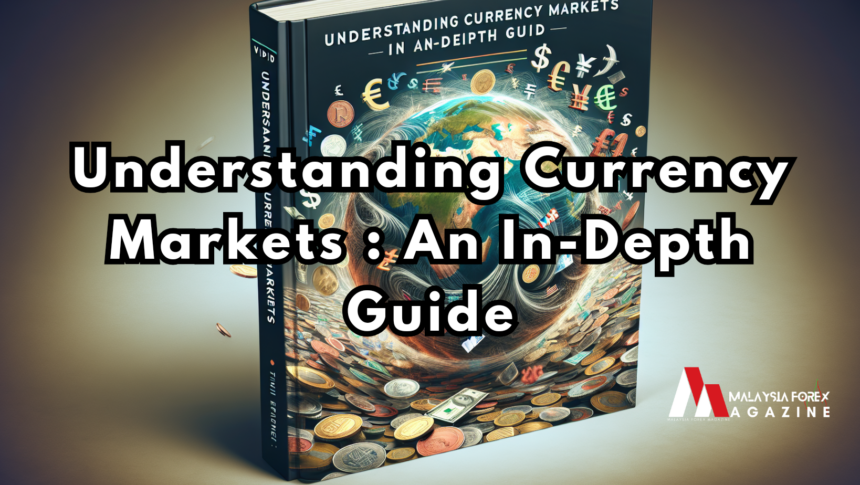Currency markets, commonly known as foreign exchange (Forex) markets, are the largest and most liquid financial markets in the world. They facilitate the buying and selling of currencies, enabling international trade, investment, and travel. This article aims to provide a comprehensive overview of currency markets, their functioning, participants, and the factors influencing currency prices.
1. What Are Currency Markets?
Currency markets are decentralized markets where currencies are traded. Unlike stock markets, which have centralized exchanges, Forex trading occurs over-the-counter (OTC) through a network of banks, financial institutions, and individual traders. The Forex market operates 24 hours a day, five days a week, allowing participants to trade currencies around the clock.
2. How Currency Markets Work
Currency trading involves the exchange of one currency for another, with prices quoted in currency pairs (e.g., EUR/USD). The first currency in the pair is called the base currency, while the second is the quote currency. The exchange rate indicates how much of the quote currency is needed to purchase one unit of the base currency.
Example:
- If the EUR/USD exchange rate is 1.20, it means 1 Euro can be exchanged for 1.20 US Dollars.
3. Major Currency Pairs
There are several major currency pairs in the Forex market, including:
- EUR/USD: Euro vs. US Dollar
- USD/JPY: US Dollar vs. Japanese Yen
- GBP/USD: British Pound vs. US Dollar
- USD/CHF: US Dollar vs. Swiss Franc
These pairs are the most traded due to their liquidity and the economic stability of the countries involved.
4. Participants in Currency Markets
The currency market consists of various participants, each with different objectives:
- Central Banks: Institutions that manage a country’s currency, money supply, and interest rates. They intervene in the Forex market to stabilize or influence their currency’s value.
- Commercial Banks: Major players in the Forex market, facilitating currency transactions for clients and engaging in speculative trading.
- Corporations: Companies that engage in international trade need to exchange currencies for their operations, managing foreign exchange risk.
- Retail Traders: Individual investors who trade currencies for profit using online platforms.
- Institutional Investors: Hedge funds, pension funds, and investment firms that trade large volumes of currency.
5. Factors Influencing Currency Prices
Several factors influence currency prices, including:
- Economic Indicators: Data such as GDP growth, employment rates, and inflation can significantly impact currency values. Strong economic performance generally leads to a stronger currency.
- Interest Rates: Central banks influence currency prices through interest rate changes. Higher interest rates attract foreign capital, increasing demand for that currency.
- Political Stability: Countries with stable governments and low levels of corruption tend to have stronger currencies. Political instability can lead to uncertainty and decreased confidence in a currency.
- Market Sentiment: Traders’ perceptions and speculations can influence currency prices. News, rumors, and economic forecasts can lead to rapid price fluctuations.
6. Types of Currency Trading
There are several types of trading strategies employed in the currency markets:
- Day Trading: Traders buy and sell currencies within the same trading day, aiming to capitalize on short-term price movements.
- Swing Trading: This strategy involves holding positions for several days to capture price movements over a longer period.
- Scalping: A high-frequency trading strategy where traders make numerous trades in a day to profit from small price changes.
- Position Trading: Long-term strategy where traders hold positions for weeks or months, relying on fundamental analysis.
7. Risks in Currency Trading
While trading currencies can be profitable, it also involves risks:
- Market Risk: The potential for losses due to fluctuations in currency prices.
- Leverage Risk: Forex trading often involves high leverage, which can amplify both profits and losses.
- Liquidity Risk: In times of market volatility, certain currency pairs may become illiquid, making it difficult to execute trades at desired prices.
- Interest Rate Risk: Changes in interest rates can impact currency values, leading to potential losses.
8. Conclusion
The currency markets play a crucial role in the global economy, facilitating international trade and investment. Understanding how these markets operate, the factors influencing currency prices, and the associated risks is essential for anyone looking to participate in Forex trading. With the right knowledge and strategies, traders can navigate the complexities of the currency markets and potentially achieve significant profits. Whether you are a novice or an experienced trader, continuous learning and adapting to market changes are key to success in this dynamic financial landscape.











